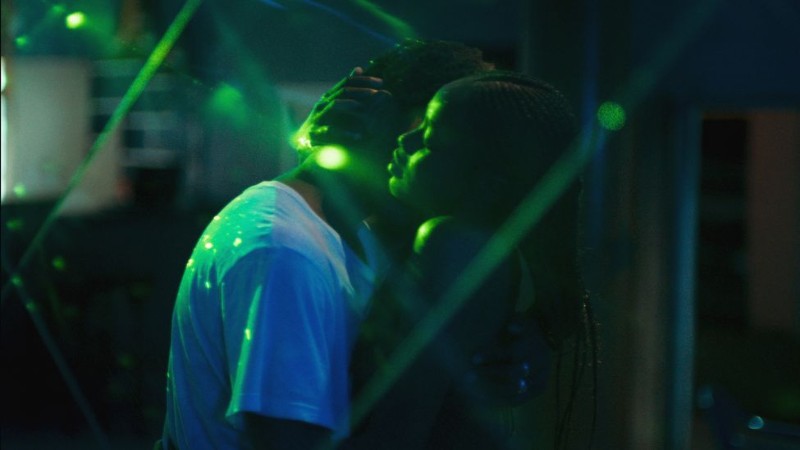QUICK AND DIRTY: LIVE FROM BERLIN
In 2019, then 37-year-old French-Senegalese filmmaker Mati Diop became the first black woman to show a film in Competition in Cannes and also the first one to win a prize at the world’s most prestigious festival: Atlantics snatched the Grand Prix (the event’s second highest award, after the Palme d’Or). The exquisite ghost story sees Africans uses the Atlantic Ocean in order to reach the much-coveted Eldorado known as Europe, and failing at their attempt. Mati Diop’s new film also sees Africans crossing the Ocean, however the context is very different. In the late 19th century, Africans were forcibly removed from their continent (more precisely from the Kingdom of Dahomey, in modern-day Benin), and taken to their colonisers in France, also via the Atlantic Ocean. Our main character is a wooden statue of King Gheza weighing approximately 220kg. It is known only as “26”, in a reference to the shipment number. The artifact was looted by French colonisers, alongside a further 7,000 items, which are now in France and other parts of the world.
A distorted voice speaking in the native tongue expresses King Gheza’s anguish as he is packed up and placed on a vessel. The screen is entirely blank, in a reference to the statue’s state of confinement inside a box. Our talkative wooden protagonist is concerned that he may not recognise his land, and that his people may no longer recognise him, after an absence of nearly 130 years. This is the poetically fictionalised element of what’s otherwise structured as a fly-on-the-wall type of documentary. Diop captures the actions of the French government, and the reactions and the reflections of the Beninese people from a respectable distance, and without providing any commentary. Instead, she allows the natives and the statue to tell their story.
The statue receives a warm welcome on its arrival, on November 9th 2021. Hordes of people dance and sing along the streets as the 26 items head towards a local museum. A group of young people (presumably university students) have a heated debate about the ethics of the unusual “repatriation”. Some argue that this is mere virtue signalling by French president Emmanuel Macron and the president of Benin Patrice Talon. The heads of state are trying to improve their image with an empty show-off gesture. They point out that 26 out of 7,000 is an almost negligible proportion, while also joking that at this speed they may return a further two to four stolen pieces in the next 100 years. A young woman s more optimistic, noting that this is a beginning, and that nobody could plunder their immaterial heritage (their dance, music, cuisine, etc). They also discuss the dangerous repercussions of colonialism, noting that their education system and their language are both French. “They made us slaves to ourselves”, someone sums it up. It is alleged that even the museum is a European concoction, and that perhaps the items should go back to their original site.
While not as artistically audacious an engaging as Atlantics, Dahomey is an interesting watch (at just 67 minutes). Despite its short duration, the story plods along in the first half, and it’s not until the fiery discussions begin that viewers become genuinely enraptured, The eeriness associated with Diop’s previous feature film surfaces in the final few minutes, when the Atlantic Ocean steps forward and becomes a fully-fledged film character, and hypnotic images are blended with an unearthly score. A welcome addition to the filmography of a young artist with a promising future ahead. Just not a masterpiece..
Dahomey just premiered in the Official Competition of the 74th Berlin International Film Festival.









